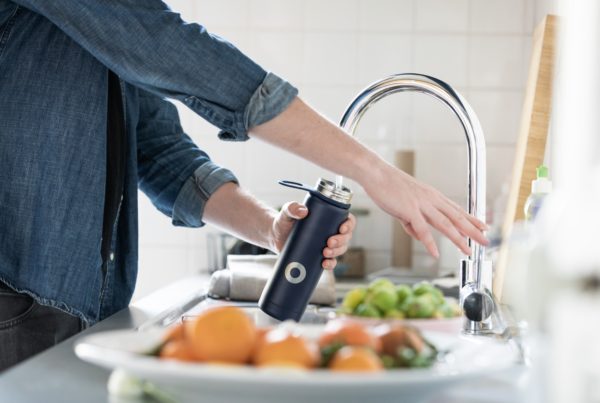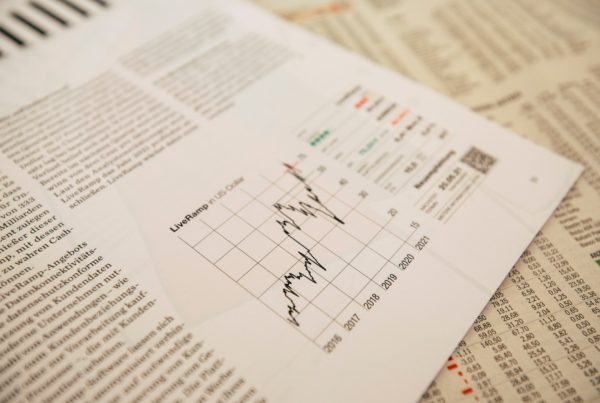
The Malta COVID-19
Public Sentiment Survey Findings & Implications
20/03/2020
The Malta COVID-19
Public Sentiment Survey Findings & Implications
20/03/2020
Should Malta go into a total lockdown? What steps should employers be taking? What are people doing to stop the spread of Coronavirus? How much can industries financially expect to lose over the next few weeks? Our survey & NSO data analysis reveals how the Maltese public feels about the Coronavirus outbreak & what economic impact we can expect.
As governments all over the world attempt to tackle coronavirus, we decided to poll the local nationals to find out their thoughts and views on this global health emergency from a Maltese point of view.
Using our Onest Online Market Research ™ tool, we polled a representative sample of 704 Maltese adults (18 and over) between 14 – 16 March.
Here’s what we found out.
 Benji Zammit,
Benji Zammit,
Business unit leader
Fact: I do 5 mins of skip rope everyday
“Where’d you hear that?”
Fake news and unscientific claims have been rife since the outbreak, so we
wanted to find out if Maltese were getting their info from verified sources.
 Benji Zammit,
Benji Zammit,
Business unit leader
Fact: I do 5 mins of skip rope everyday
Should Malta go into a total lockdown? What steps should employers be taking? What are people doing to stop the spread of Coronavirus? How much can industries financially expect to lose over the next few weeks? Our survey & NSO data analysis reveals how the Maltese public feels about the Coronavirus outbreak & what economic impact we can expect.
As governments all over the world attempt to tackle coronavirus, we decided to poll the local nationals to find out their thoughts and views on this global health emergency from a Maltese point of view.
Using our Onest Online Market Research ™ tool, we polled a representative sample of 704 Maltese adults (18 and over) between 14 – 16 March.
Here’s what we found out.
“Where’d you hear that?”
Fake news and unscientific claims have been rife since the outbreak, so we wanted to find out if Maltese were getting their info from verified sources.
WHERE ARE YOU GETTING YOUR INFORMATION?
Social Media tops the poll with a strong 46% of Maltese sourcing their COVID-19 information from social media posts & shares, this is a little worrying as social media is the epicenter for fake news and sensational headlines. Not so encouragingly we see that news outlets are the second most popular option for virus updates with a mere 24%. Given that news outlets are assumed to be giving proper advice and information we would have expected to see this option rank higher. At the bottom of the graph, we see friends & family with 2% of people relying on this option as their primary source of information for COVID-19 Malta.
The main concern is that the government and health professionals, the ones we assume would have the most up-to-date and accurate information, come in one before the last with a respective percentage of 14% & 13 %.
Make of that what you will.
What are people already doing
We also found 79% of Maltese thought it was very important that individuals took action to prevent the spread of the virus. But what were the people we asked actually doing themselves?
Quite worryingly we noted that 33% of people aren’t even washing their hands! When looking at gender, we also found that only 53% of men are doing so compared to 78% of women. I’d hope they’re still washing them in general, virus or not.
Social Media tops the poll with a strong 46% of Maltese sourcing their COVID-19 information from social media posts & shares, this is a little worrying as social media is the epicenter for fake news and sensational headlines. Not so encouragingly we see that news outlets are the second most popular option for virus updates with a mere 24%. Given that news outlets are assumed to be giving proper advice and information we would have expected to see this option rank higher. At the bottom of the graph, we see friends & family with 2% of people relying on this option as their primary source of information for COVID-19 Malta.
The main concern is that the government and health professionals, the ones we assume would have the most up-to-date and accurate information, come in one before the last with a respective percentage of 14% & 13 %.
Make of that what you will.
What are people already doing
We also found 79% of Maltese thought it was very important that individuals took action to prevent the spread of the virus. But what were the people we asked actually doing themselves?
Quite worryingly we noted that 33% of people aren’t even washing their hands! When looking at gender, we also found that only 53% of men are doing so compared to 78% of women. I’d hope they’re still washing them in general, virus or not.
WHAT HAVE YOU BEEN DOING SINCE THE OUTBREAK?
Meanwhile, 15% of people are actively stockpiling supplies from supermarkets which ties into the fact that more than half of the Maltese are not leaving their homes unless to purchase supplies. A very common precaution that relates to the fact that 89% of people are concerned about the coronavirus in Malta.
Meanwhile, 15% of people are actively stockpiling supplies from supermarkets which ties into the fact that more than half of the Maltese are not leaving their homes unless to purchase supplies. A very common precaution that relates to the fact that 89% of people are concerned about the coronavirus in Malta.
HOW CONCERNED ARE YOU ABOUT COVID-19 IN MALTA?
HOW CONCERNED ARE YOU ABOUT COVID-19 IN MALTA?
Only 7% of Maltese are essentially going about their business as usual, while an additional 13% who may have restricted their movements on the island. These are early warning signs for Malta’s economy.
Over three-fourths of locals are avoiding bars & restaurants, which at the time of writing this article have been shut down on government orders. A further significant chunk of the population are changing their shopping habits, with 30% of people having stopped ordering products outside of Malta. We also noted a strong 70% of the population passing on the cinema and tourist attractions. While a surprising near one-third of Maltese are avoiding their favorite food delivery apps.
Over three-fourths of locals are avoiding bars & restaurants, which at the time of writing this article have been shut down on government orders. A further significant chunk of the population are changing their shopping habits, with 30% of people having stopped ordering products outside of Malta. We also noted a strong 70% of the population passing on the cinema and tourist attractions. While a surprising near one-third of Maltese are avoiding their favorite food delivery apps.
WHAT HAVE YOU BEEN AVOIDING SINCE THE OUTBREAK?
How much could this cost the industries concerned?
We turned to the NSO Household Expenditure 2019 Q1 Report to find out. By looking at weekly spend for certain products and subtracting the percentage of people avoiding them, we found that:
How much could this cost the industries concerned?
We turned to the NSO Household Expenditure 2019 Q1 Report to find out. By looking at weekly spend for certain products and subtracting the percentage of people avoiding them, we found that:
Meanwhile, using data from the NSO Tourism 2019 Q1 Report, Maltese citizens will spend €5.7m less in the month of March on outbound tourism. With all inbound flights being banned temporarily as of 20th march 2020 we can expect up to €34.8m less spend in March from inbound tourists based on the average package (flights, accommodation & local spending) for 2019 Q1 expenditure obtained from NSO Tourism 2019 Q1
These numbers are significant enough, but if cases continue to increase, the fears of a huge economic shock to Malta may well come true.
Employer responsibility
With regard to employer expectations, 85% of local employees think it’s very important for employers to take action against the spread of the virus in the workplace. But what actions do they want?
Meanwhile, using data from the NSO Tourism 2019 Q1 Report, Maltese citizens will spend €5.7m less in the month of March on outbound tourism. With all inbound flights being banned temporarily as of 20th march 2020 we can expect up to €34.8m less spend in March from inbound tourists based on the average package (flights, accommodation & local spending) for 2019 Q1 expenditure obtained from NSO Tourism 2019 Q1
These numbers are significant enough, but if cases continue to increase, the fears of a huge economic shock to Malta may well come true.
Employer responsibility
With regard to employer expectations, 85% of local employees think it’s very important for employers to take action against the spread of the virus in the workplace. But what actions do they want?
WHAT PRECAUTIONS DO YOU EXPECT YOUR EMPLOYER TO ACTION?
Working from home tops the list, but there’s also significant support for supplying hand sanitisers and advising employees on the actions they should be taking.
Some more extreme options, such as 32% want visitors to the workplace banned and 25% of employees expect the workplace property to be closed. Considering the strong implications, a substantial 15% expect the employer to shut down the business entirely. As the outbreak increases locally we are forecasting a shift to the more drastic measures outlined in the above graph.
There’s also been a lot of talk about the effect of self-isolation and quarantine. For people who can work at home, with contracted hours, the answer is pretty simple: work from home.
For those who can’t, such as those in the fast food/catering, healthcare sectors & manufacturing things get more difficult. Not only can they not do their job from home, but doing their job increases the risk of coronavirus spreading. Undoubtedly if they must stay home their work would just not get done.
Luckily for them, we found that a small portion of nationals, 4%, do not agree that these people should be paid.
Working from home tops the list, but there’s also significant support for supplying hand sanitisers and advising employees on the actions they should be taking.
Some more extreme options, such as 32% want visitors to the workplace banned and 25% of employees expect the workplace property to be closed. Considering the strong implications, a substantial 15% expect the employer to shut down the business entirely. This is something that we do not recommend given the current early days of the outbreak & impact on the already fragile economic state of the Maltese Islands. As the outbreak increases locally we are forecasting a shift to the more drastic measures outlined in the above graph.
There’s also been a lot of talk about the effect of self-isolation and quarantine. For people who can work at home, with contracted hours, the answer is pretty simple: work from home.
For those who can’t, such as those in the fast food/catering, healthcare sectors & manufacturing things get more difficult. Not only can they not do their job from home, but doing their job increases the risk of coronavirus spreading. Undoubtedly if they must stay home their work would just not get done.
Luckily for them, we found that a small portion of nationals, 4%, do not agree that these people should be paid.
SHOULD EMPLOYEES WHO MISS WORK DUE TO SELF-ISOLATION
OR QUARANTINE STILL BE PAID BY THEIR EMPLOYER?
SHOULD EMPLOYEES WHO MISS WORK DUE TO SELF-ISOLATION
OR QUARANTINE STILL BE PAID BY THEIR EMPLOYER?
There’s a more difficult problem for those on zero-hour contracts though. With no set amount of hours to work, how can they be compensated for work missed? Their choice will be to work or not be paid. For many, the latter is not a viable choice at all.
A huge under-discussed problem relating to the COVID-19 potential crisis is how to create confidence for those on low pay, especially the significant numbers on zero-hours contracts in retail and hospitality. If they had to self-quarantine with the present government support they would suffer extreme income loss. This situation needs to be seriously discussed.
What should the Maltese government do?
Finally, we asked what Malta wanted their government to do. As cases are due to rise, PM Robert Abela has detailed the lockdown plan. This will please nearly half of the Maltese as 42% of people believe the government should enforce a total lockdown to contain the spread of COVID-19.
For the most part, the government’s campaigns are advising people to wash their hands and the Maltese are listening to these guidelines as more than 94% of people are washing their hands more than 4 times a day, with 28% washing their hands more than 13 times. It would be interesting to see the change in household water & energy consumption during this Coronavirus month.
There’s a more difficult problem for those on zero-hour contracts though. With no set amount of hours to work, how can they be compensated for work missed? Their choice will be to work or not be paid. For many, the latter is not a viable choice at all.
A huge under-discussed problem relating to the COVID-19 potential crisis is how to create confidence for those on low pay, especially the significant numbers on zero-hours contracts in retail and hospitality. If they had to self-quarantine with the present government support they would suffer extreme income loss. This situation needs to be seriously discussed.
What should the Maltese government do?
Finally, we asked what Malta wanted their government to do. As cases are due to rise, PM Robert Abela has detailed the lockdown plan. This will please nearly half of the Maltese as 42% of people believe the government should enforce a total lockdown to contain the spread of COVID-19.
For the most part, the government’s campaigns are advising people to wash their hands and the Maltese are listening to these guidelines as more than 94% of people are washing their hands more than 4 times a day, with 28% washing their hands more than 13 times. It would be interesting to see the change in household water & energy consumption during this Coronavirus month.
HOW MANY TIMES ARE YOU WASHING YOUR HANDS PER DAY?
There is a range of contingency actions at the ready in case things get much worse. At the moment, the name of the game is instilling calm and keeping things ticking along.
There are huge calls for more testing and action at Malta’s border. Nearly 79% of people want everyone entering Malta quarantined, which would include holidaymakers, business people, and import delivery drivers. The disruption to the country’s economy would be unfathomable.
Clearly this is not an option the government will be taking any time soon, but they have spoken about travel restrictions within Malta. Half of Maltese supports the notion of random virus testing on residents to help identify any undetected cases.
There is a range of contingency actions at the ready in case things get much worse. At the moment, the name of the game is instilling calm and keeping things ticking along.
There are huge calls for more testing and action at Malta’s border. Nearly 79% of people want everyone entering Malta quarantined, which would include holidaymakers, business people, and import delivery drivers. The disruption to the country’s economy would be unfathomable.
Clearly this is not an option the government will be taking any time soon, but they have spoken about travel restrictions within Malta. Half of Maltese supports the notion of random virus testing on residents to help identify any undetected cases.
WHAT SHOULD THE MALTESE GOVERNMENT BE DOING
TO LIMIT THE SPREAD OF THE VIRUS?
With conferences around the world being cancelled, talk of moving the Olympics and the Euros also being delayed to 2021, sports & culture for the rest of this year is going to be pretty boring.
What do we know
It’s obvious that people in Malta want action, and it’s obvious the Malta government will take it in some form or another.
Just as it is for the rest of the world’s leaders and politicians, the Malta government faces balancing health, economy, and public opinion. Not exactly an envious position.
It’s a matter now preparing ourselves for what may happen. If things continue to take a turn for the worse, the choices at hand become harder and fewer, for the people, their employers, and their government.
On a positive note:
CO2 emissions were down by at least 25% Globally
Center for Research on Energy and Clean Air (CREA)
Keep updated and informed with our live dashboard: https://covid19malta.com
With conferences around the world being cancelled, talk of moving the Olympics and the Euros also being delayed to 2021, sports & culture for the rest of this year is going to be pretty boring.
What do we know
It’s obvious that people in Malta want action, and it’s obvious the Malta government will take it in some form or another.
Just as it is for the rest of the world’s leaders and politicians, the Malta government faces balancing health, economy, and public opinion. Not exactly an envious position.
It’s a matter now preparing ourselves for what may happen. If things continue to take a turn for the worse, the choices at hand become harder and fewer, for the people, their employers, and their government.
On a positive note:
CO2 emissions were down by at least 25% Globally
Center for Research on Energy and Clean Air (CREA)
Keep updated and informed with our live dashboard: https://covid19malta.com






